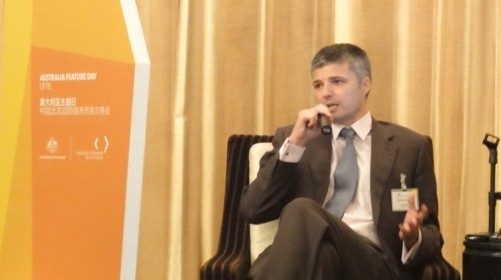
Harris Bricken’s lead China entertainment attorney, Mathew Alderson (who Variety Magazine named as one of the 50 most influential entertainment lawyers) will be speaking on a panel at the Westin St. Francis, San Francisco, on June 28. The panel is entitled “The Impact of Regulatory Changes on China’s Entertainment Sector: Trends and Challenges.” Mathew’s panel will be part of the 2019 Summit on Commercial Dispute Resolution in China, presented by The Beijing Arbitration Commission in association with JAMS.
The panel will focus on how recent regulatory changes in China are affecting Hollywood and the media and entertainment sectors in China. The event will be moderated by JAMS mediator and arbitrator, Jeffrey G.Benz. The other panelists will be Allbright Beijing’s James Tian and JAMS mediator and arbitrator Barbara Reeves.
China’s media and entertainment industry is, in many ways, on the front lines of the recent US-China trade war and it has already been greatly impacted by it. In Chinese cinema eclipses US box office as Hollywood films suffer during trade war, the Telegraph newspaper nicely sums up much of what is happening to Hollywood entertainment in China these days:
China is targeting Hollywood in a new escalation of its trade war with the United States, refusing to show Western films in cinemas and on television, and sacking American actors.
The move is intended to damage an iconic US industry as tensions between the world’s two largest economies remain high.
It also comes as China is set to overtake the US as the country with the biggest box office takings in the world next year.
Foreign movies and entertainment are getting hit by a double whammy as China seeks both to retaliate against U.S. tariffs and crack down on foreign influences. And as is true of so much of what China does with foreign companies, this crackdown against foreign entertainment is being done “unofficially””
It’s Hollywood, it’s a strong industry for America and it’s symbolic” Dan Harris an international lawyer advising clients doing business in China, told The Telegraph. “With the film industry there are levers China can pull and push as much as they want. That’s what we’re hearing they’re now doing. It’s a matter of degree, but it’s being ramped up and and it will continue to escalate. All of a sudden you realise there are no Western movies.”
There has been no official directive from the Chinese government but industry figures indicate not-so-subtle pressure has been brought to bear and a “de facto” policy is in place.
* * * *
The Los Angeles-based Independent Film and Television Alliance, which represents independent film companies in the US, said the developments were an “extreme setback”. One industry insider said: “We just don’t know if it’s going to be possible to get release dates for American movies.”
A clear signal of China’s intent to target US-produced entertainment came two weeks ago when Tencent, the Chinese internet giant, cancelled streaming of the final episode of Game of Thrones. The series is highly popular in China. Over the Sea I Come to You, a Chinese TV series filmed in the US with American actors, was also cancelled.
One, who asked not to be named, told Variety: “Essentially overnight many Americans have been left with no on-screen prospects. Some were fired, some had auditions cancelled, and essentially all our phones have stopped ringing.”
If you are interested in the issues confronting Hollywood in China you should go. The conference runs from 9 a.m. until 6 p.m., with the post-event reception scheduled to last until 7:30 p.m. Go to this link to register. Mathew’s session starts at 2:15.
We hope to see you there.
–This is originally appeared on China Law Blog.






